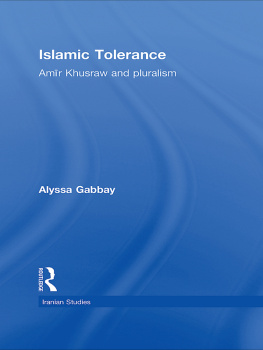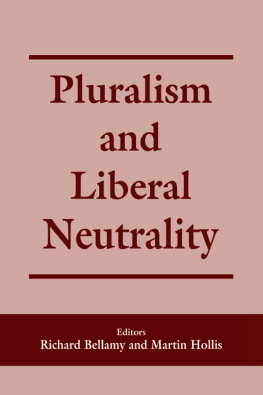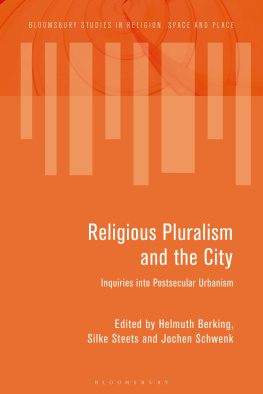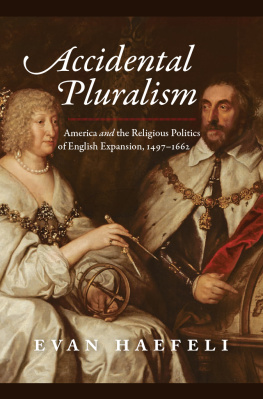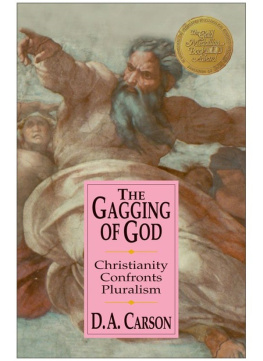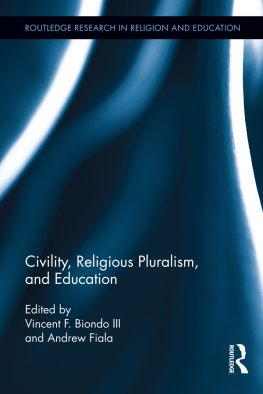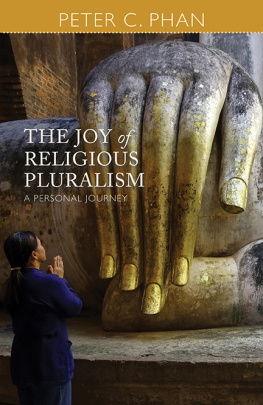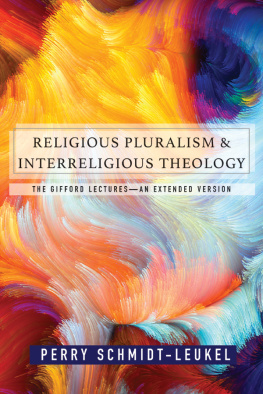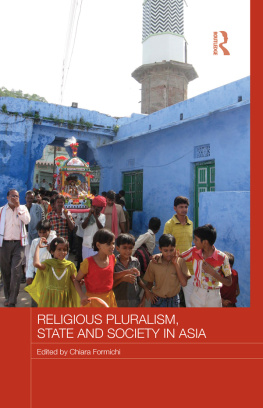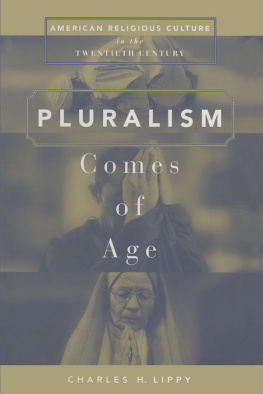The Culture of Religious Pluralism
Explorations:
Contemporary Perspectives on Religion
Lynn Davidman, Gillian Lindt, Charles H. Long, John P. Reeder Jr., Ninian Smart, John F. Wilson, and Robert Wuthnow, Advisory Board
The Culture of Religious Pluralism, Richard E. Wentz
New Religions as Global Cultures: Making the Human Sacred, Irving Hexham and Karla Poewe
Church, Book, and Bishop: Conflict and Authority in Early Latin Christianity, Peter Iver Kaufman
Religion and Politics in America: Faith, Culture, and Strategic Choices, Robert Booth Fowler and Allen D. Hertzke
Birth of a Worldview: Early Christianity in Its Jewish and Pagan Context, Robert Doran
Explorations: Contemporary Perspectives on Religion
First published 1998 by Westview Press
Published 2018 by Routledge
711 Third Avenue, New York, NY 10017, USA
2 Park Square, Milton Park, Abingdon, Oxon OX14 4RN
Routledge is an imprint of the Taylor & Francis Group, an informa business
Copyright 1998 Taylor & Francis
All rights reserved. No part of this book may be reprinted or reproduced or utilised in any form or by any electronic, mechanical, or other means, now known or hereafter invented, including photocopying and recording, or in any information storage or retrieval system, without permission in writing from the publishers.
Notice:
Product or corporate names may be trademarks or registered trademarks, and are used only for identification and explanation without intent to infringe.
A CIP catalog record for this book is available from the Library of Congress.
ISBN 13: 978-0-8133-2644-3 (pbk)
ISBN 13: 978-0-8133-2643-6 (hbk)
For Cynthia
... all he did was spread the room
Of our enacting out the doom
Of being in each others way,
And so put off the weary day
When we would have to put our mind
On how to crowd but still be kind.
America Is Hard to See
Robert Frost
Pluralism means, then, not only the division into many different ecclesiastical organizations and theological points of view, but also a state of mind instinctively defensive of it.
The Fact of Pluralism and the Persistence of Sectarianism
Sidney E. Mead
This book is dedicated to Sidney E. Mead (1904), good friend of these latter days, who set before me the task herein.
My study of religion in American history, whatever else it may be, becomes a quest to discover and delineate the religion of the pluralistic culture in which I have lived and moved and had my being.
In Quest of Americas Religion
Sidney E. Mead
This book emerges out of a conversation with Spencer Carr, at the time a senior editor with Westview Press. The project grew out of his suggestion that I have a go at the business of describing the contours of pluralism. Because my scholarly career has been spent thinking about religion in American history, I have quite naturally explored pluralism in that context.
I owe a great deal to so many people whose ideas have become part of my own language. I cannot give them all credit, for fear of leaving out the names of dear friends and others who contributed, often unknowingly, to my hermeneutical maneuvers. However, I have singled out Sidney Mead for my dedication because I am very much in harmony with his imaginative handling of data referred to as history, and also because I have come to know him so well since he came to Arizona to live out his latter days. Although trained as a historian, I have been most interested in what history means, with how we may use historical perspective to create a meaningful discourse about human destiny.
As usual, my wife, Cynthia, has provided the critical nudging that challenges cherished ideas. She is a scholar of considerable scope, and one devoted to issues of religion and justice, particularly with regard to Native Americans. She keeps me as honest as possible to the degree that I allow anyone to tamper with the dishonesty that resides within. She will recognize many of her own ideas within these pages.
To all those who may somehow learn that human religiousness is greater than the sum of religions, I offer this study. We cannot proceed, however, without friendly acknowledgment of the faithfulness of Jim Dybdahl, who has worked with my handwritten manuscripts for many years, transforming them into documents suitable for editorial action.
Richard E. Wentz
1
Diversity and Pluralism: An Introduction
A culture can be defined as an identifiable and regularized behavior that is attributable to a particular people and that is expressed through certain images, symbols, rituals, myths, and other kinds of stories. Art, music, literature, celebrations, and other distinctive creations and behaviors are all cultural forms; they give expression to the manner in which a certain people in their time and place live out their days. Cultures do not die; they undergo constant transformation. A culture that is believed to be dead usually lives on among a people who have memories of a mythic and legendary past. Even the dead language of a culture may live in words, symbols, and stories that continue to be important. It was long thought that the pre-Columbian cultures of Mexico and Central and South America were extinct. However, we are increasingly aware of the fact that the Incan and Aztec cultures live on among peoples whose present circumstances still reflect their cultural ancestry.
Culture is a difficult subject for academic study; it is inventive, changing, and elusive. Cultural study becomes a kind of mural painting, an affair of constantly identifying new elements and extending the tapestry. Therefore, cultural study is an interesting, even a fascinating intellectual enterprise. As Franklin Gamwell reminds us: [The word] religion is frequently used, at least in the first instance, to identify a form of culture. This would imply, of course, that religion and culture are virtually indistinguishable terms. It would mean that what we call religions are those identifiable cultural forms associated with distinctive ways of living. Although religion and culture are finally indistinguishable, it is useful to understand that religion represents a particular reading of culture. Religion concerns itself with the manner in which cultural forms express a certain sense of the ultimate order and meaning of existence. The study of religion is therefore never satisfied with the definitions and proscriptions provided by official councils and their doctrines. It must take an academic reading of the entire culture. As Sam Gill puts it in his study of the religions of nonliterate peoples:
We are faced with great opportunities and challenges in the study of nonliterate peoples. The opportunities rest upon extending our knowledge of religious belief and practice in the cultural domains where religion is lived by all the people of a culture, a dimension to which in nonliterate cultures we are nearly confined. This cultural dimension exists in religions everywhere, but it has been largely ignored by religion scholars because of a preference to study religion in terms of its written documents. We are presented with the challenge to learn how to read and to understand the religious significance of elements of expression that are not written, such things as art, architecture, oral traditions, and ritual.



